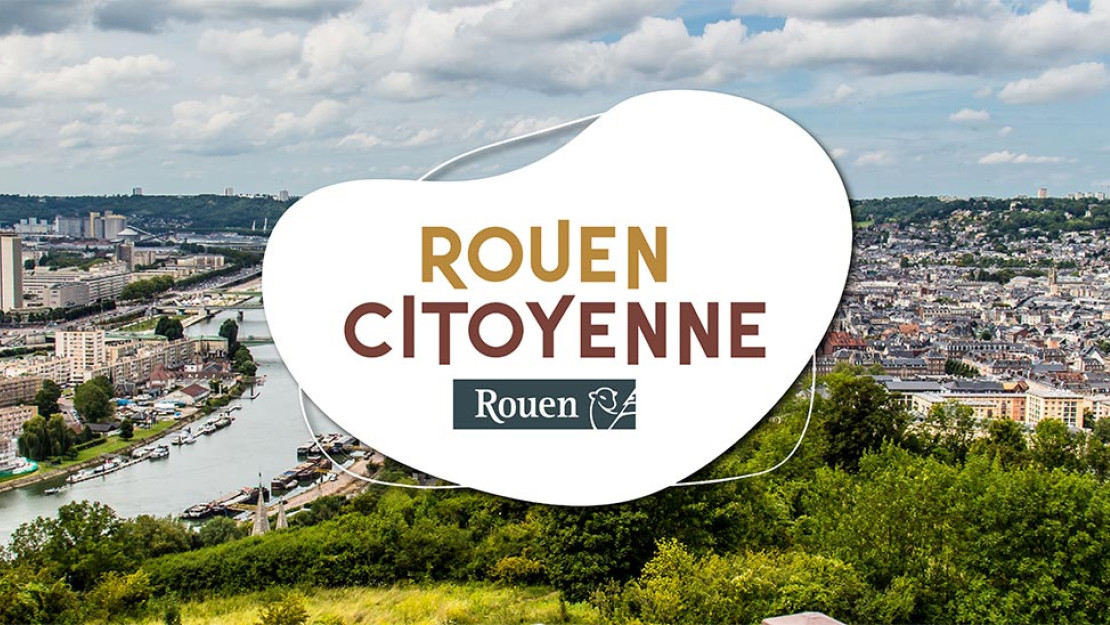A successful experiment in democracy"

At the beginning of 2022, the French city of Rouen convened its first citizens' assembly. It was about the city's health, climate protection and industrial policy. 30 randomly selected citizens formulated around 100 proposals. Some of the assembly participants will now follow the implementation of the recommendations in a long-term citizens' committee.
The rehabilitation of freight railway lines, retention basins above and below Rouen to prevent the flooding of factories and residential areas, publicising the energy consumption of the city's buildings, offering the general public tours of industrial sites to better understand how they work, training more adults in first aid... These are some of the answers given by the citizens of Rouen to the question put to them: "What measures can/should the city of Rouen and its inhabitants take to adapt to the three major challenges of the 21st century: Climate change, health crises and industrial risks?"
Issues of key importance
On 26 September 2019, the Lubrizol factory located southwest of Rouen burned: 10,000 tonnes of chemicals went up in smoke. Six months later, all French people were affected by the COVID-19 pandemic. Nicolas Mayer-Rossignol, Mayor of Rouen, said: "Installing a citizens' assembly was first and foremost a mandate commitment that we have honoured," indicates Nicolas Mayer-Rossignol, Mayor of Rouen. "As for the three themes chosen, they are at the heart of the concerns of the people of Rouen: the climate risk is a major issue for a port city like ours. The health risk has affected us all. And industrial safety is linked to the specificities of our economic fabric: the Lubrizol fire has particularly marked people's minds."
In selecting the citizens' assembly participants, the city of Rouen enlisted the help of experts. 350 Rouen residents were contacted by telephone. Of those who responded positively to the invitation, 36 were selected according to their socio-economic profile, their neighbourhood and their age, trying to ensure parity. Finally, 30 residents between 17 and 78 years of age participated, with 44 per cent of the participants being women. All received an allowance for their participation. In return, the participants committed to attending all three citizens' assembly weekends.
Meetings on three weekends
The assembly participants met three times from January to March 2022. The first weekend was a meeting where experts provided participants with information on each topic. The second weekend was held in a round table format and the third was used to formulate the recommendations. In total, the assembly members heard from 20 experts, including 14 from the region, who had been invited on the initiative of the Local Democracy Department. The day after last weekend, the citizens handed over their recommendations to the members of the city council.
"They did not keep quiet with their opinion, and this first step is already a successful experiment in democracy," said the mayor. They have also done their work constructively, not only by making demands but also by proposing solutions." The mayor expressed regret that the participants would have liked an extra weekend to work even further on their citizens' report.
More than 100 proposals
The 25 pages of the citizens' report contain more than 100 suggestions. "The proposals of the citizens have generally confirmed our major orientations in favour of renaturation or soft mobility for example," notes the mayor. "On several subjects, the citizens have indicated that they want to see action stepped up: on the cycling policy, on the association of citizens with industrial transparency." Most of the suggestions were on the issue of adaptation to climate change.
"This type of approach is a good barometer of our public policies, and the citizens also play a role as a spur, which allows us to put the train back on track," emphasises the mayor. "It is also an opportunity for them to better understand the issues and the functioning of representative democracy, it is a real training period. However, it is important not to make people believe that we will take all the proposals as they are, that would be dishonest. We analyse them precisely through the filter of the constraints of public action." In its response to the citizens' report, the municipality makes clear which proposals it accepts and which it does not, and explains why it does not accept certain proposals.
"A good democratic path"
This first citizens' assembly is now complete. Participating citizens will be able to follow the progress of their proposals in a brand new "citizens' assembly" of the city. This permanent body will consist of half randomly selected citizens and half volunteers. Already, 14 participants in the citizens' assembly have expressed their willingness to become part of this body. In doing so, they will ensure that their opinions are respected, but also to address any transition issue, be asked for help by elected councillors or voice their opinion on any local initiative submitted on a city platform. "They are now enlightened citizens. I am convinced that with this type of initiative, there is a beautiful democratic path to be traced together." says Mayor Mayer-Rossignol.
Read more: Rouen Citoyenne